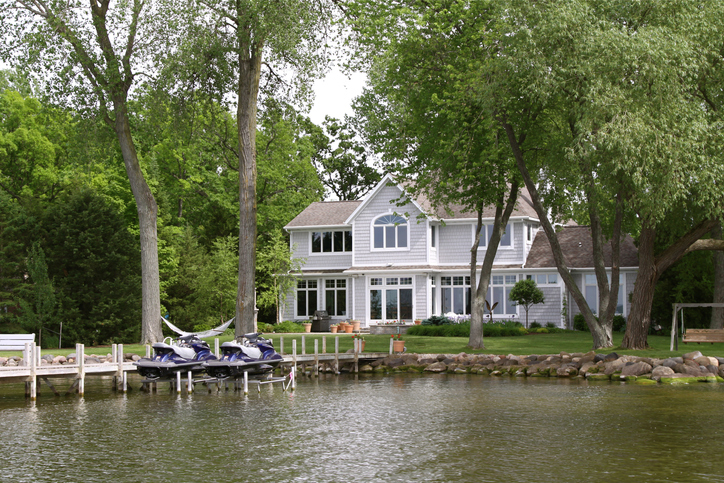
Buying a lakefront property is different from purchasing a traditional home in more ways than one. There are a number of important factors to consider before you make that big purchase. Consider asking these questions:
- What kind of lake is it?
When you buy lakefront property, you’re not just buying the house, but the lake and its surroundings as well. That’s why it’s a must to know as much as you can about the area.
The lake’s water quality is one of the first few aspects to look into. Is the lake water murky or clear? How often does it get tested? Knowing the answers to these questions can help you determine whether this is the right lake for you or not.
South Carolina’s Lake Greenwood is actually a great source of clean drinking water. The lake, along with the fishes in it, is monitored and tested regularly.
- What recreational activities can be done here?
Activities such as fishing, boating, and swimming are just some of the most common recreational pastimes in a lake. Then again, there may be some regulations to follow regarding these activities.
If your focus is on fishing, ask about the type of fish that is usually caught or found in that lake. Lake Greenwood, in particular, is a well-known spot in South Carolina for catching crappie, bass, and catfish. Swimming is also allowed in Lake Greenwood, as long as it’s far from the boat ramps, docks, and fishing piers.
- What is the lakeshore like?
Lakes have different shorelines. They’re either rocky, muddy, or sandy. While some shorelines are easier to navigate on, the muddy ones present a challenge for lakefront homeowners. The terrain may not be easy to walk on, let alone build anything on.
- How accessible is the property?
Accessibility is an important factor when it comes to waterfront properties. There are three kinds of lake properties: lakefront, lake view, and lake access. All properties give you access to the water but lakefront homes are the ones that give you direct access.
If you have children or pets, you also need to consider the proximity of the water to your property, as well as the wildlife present in the area.
- How busy does the property get?
If you’ll be spending a lot of time in your lake house, you also need to consider the noise levels and how populated the area is. If you’re looking for a quiet and peaceful lake, then you’re more suited to one that’s motor-free and secluded. But if your goal is to socialize and engage in water sports activities, you’re much better off in an active lakefront community.
- Is there a homeowner’s association?
If your lakefront home is part of an association, you’ll be required to join and abide by its rules. Research and learn more about the homeowners’` association and its rules and requirements. This way, you will know if the association’s rules, regulations, and requirements appeal to you or not.
Majority of the communities and neighborhoods in and around Lake Greenwood are maintained by a homeowners’ association. Common association rules include having one house per lot, paying your homeowners’ association fees, and no clear-cutting of trees.
- Is the property in a flood zone?
Knowing if your potential lakefront property is in a flood zone can help you determine if you need to purchase flood insurance for your home or not. Ask about the history of water levels in the area and if the home had any flooding issues before. You can also check a flood zone map for more information.
- What are the zoning rules and regulations?
Here is one distinct difference between lakefront properties and traditional homes: a different set of zoning rules and regulations governs lakefront properties. The purpose for these is to maintain the ecological balance between the human settlements and the natural habitat. These zoning rules and regulations are usually set by the county, the local government or the homeowner’s association. These may limit your plans to build a dock, pier or boathouse along your shoreline.
- Are there any defects in or around the property?
Due to their direct exposure to the elements, lakefront properties become prone to certain issues such as rust, mold, and rot. That’s why it’s important to ask your real estate agent or the home seller about any faults or problems in the house. You are also entitled to a seller disclosure form, which should contain information regarding the home’s roof, floors, foundation, and plumbing.
Looking for the perfect lake house in Lake Greenwood, SC? Let The Wiley Team help you out! We are a highly experienced team dedicated to helping our clients find the right Lake Greenwood property. Call us at 864.993.8153 or send us an email here.


